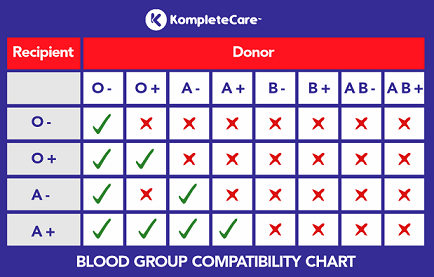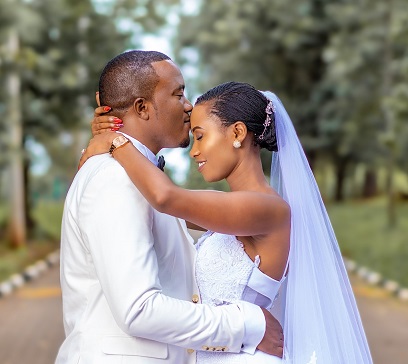
In this article, we explain which pair of blood groups to avoid for marriage and how being aware of this can help protect the health of your future children as well as knowing what’s obtainable during an emergency.

Do you think there are blood groups to avoid for marriage? If you are thinking about getting married then you should consider discussing your blood group with your partner. The discussion is not to scare you but to brace yourself for any future occurrences especially with having children.
We will also explore the significance of Rh factor incompatibility, ABO blood group issues, and other key considerations that couples should be aware of before getting married.
Blood group also called blood type refers to the different types of blood found in humans which are determined by the genes we inherit from our parents. They are classified into four main types based on the presence or absence of antigens (proteins) on the surface of red blood cells:
In addition to these four types, blood is also classified based on the Rhesus factor (Rh) which can either be positive (+) or negative (-). Each group can be either RhD positive or RhD negative, which means in total there are 8 blood groups.
Below is how the blood groups are represented for each individual.

Blood group issues do not affect marriage. All the blood groups are compatible for marriages and this blood group compatibility chart can help you make more informed decisions.
The only concern with certain blood groups arises when a couple decides to have children, as blood group incompatibility may lead to complications during pregnancy.
The good news is that medicine has advanced significantly, and most blood group incompatibility issues can be managed with proper medical care.
There are also couples who value blood group compatibility for the purpose of being able to donate blood for blood transfusions during emergencies.
The American Red Cross gives this breakdown for blood donation and transfusion to avoid complications.
Rh+ or Rh- blood can be given to those who are Rh+, but if you are Rh-, you can only receive Rh- blood.
Couples with Rhesus factor incompatibility should not necessarily avoid marriage. Instead, they should consult with a Doctor to discuss their risks and the steps they can take to ensure a healthy pregnancy. In most cases, as long as the couple is aware of their blood groups and genotypes and follows medical advice, they can have a healthy and successful pregnancy.

Concerns about pair of blood groups to avoid for marriage are usually limited to possible Rh factor incompatibility during pregnancy. This happens when couples have different Rh factors.
Couples with different Rh factors may face complications, especially if the mother has Rh-negative blood, and the father has Rh-positive blood. If the child inherits the father’s Rh-positive blood, the mother’s body may produce antibodies that would attack the baby’s red blood cells resulting in hemolytic disease of the newborn (HDN) or erythroblastosis fetalis, a life-threatening condition for the baby.
Rh incompatibility can result in several complications during pregnancy, including:
The good news is that Rh incompatibility is manageable with some medications. If a couple knows about the potential incompatibility, doctors can monitor the pregnancy closely and provide an injection of Rh immunoglobulin (RhIg) to the mother. This prevents her immune system from attacking the baby’s Rh-positive blood cells.

While the risk of Rh incompatibility can be managed, it’s still important for couples to be aware of their blood groups before marriage. Here are the combinations of blood groups that may require extra caution:
This is the most well-known blood group combination that may cause issues. If the mother is Rh-negative (e.g., A-, B-, AB-, or O-) and the father is Rh-positive (e.g., A+, B+, AB+, or O+), there is a risk of Rh incompatibility.
ABO Blood Group Incompatibility (Blood group O mother and A,B, AB father)
Although less severe than Rh incompatibility, ABO blood group incompatibility can also cause problems in pregnancy. This occurs when the mother’s blood group is O, and the father’s blood type is A, B, or AB.
In such cases, the mother’s body may produce antibodies that attack the baby’s blood cells if the baby inherits the A or B antigens from the father.
However, ABO incompatibility usually results in milder conditions than Rh incompatibility, such as mild jaundice, which can often be treated after birth.
For ABO incompatibility, most cases can be managed after birth, with treatments available for jaundice and anemia. In some cases, the baby may need a blood transfusion, but these instances are rare, and modern medical care can ensure a positive outcome for both mother and child.

When it comes to marriage, blood groups to avoid should not be a stumbling block but it is certainly something to be aware of. Couples should know their blood groups and understand the potential risks associated with certain combinations, particularly Rh incompatibility.
By consulting with trained medical doctors and following proper medical advice, most of the complications related to blood group incompatibility can be effectively managed. With the right care, couples can still enjoy a healthy and happy marriage, regardless of their blood groups.
All blood groups are compatible for marriage but based on Rh factor incompatibility, An Rh-negative woman and Rh-positive man cannot marry. This is because there’s a chance their baby could inherit the father’s Rh-positive blood, which may lead to complications during pregnancy as the mother’s body might produce antibodies against the baby’s Rh-positive blood, potentially causing death for the baby.
Yes, since both partners are positive, there is no risk of Rh incompatibility.
All the blood groups A, B, AB and O can marry each other. You can marry a partner with the same blood group as you or one with a different blood group. All blood groups are perfectly compatible.
The Rh-negative and Rh-positive blood types are not compatible with pregnancy. This occurs when the father is Rh-positive, and the mother is Rh-negative. Rhesus incompatibility also occurs when an expectant mother is rhesus-negative but carrying a rhesus-positive child. If the mother is Rh-negative and the unborn baby is Rh-positive, problems will likely develop during that pregnancy or future pregnancies.
Telemedicine offers the option of speaking or chatting with medical professionals online. The convenience and accessibility it offers make it your best option in today’s world where it is not easy to book a doctor’s appointment anymore.
Telemedicine makes it easier and faster to consult a doctor from the comfort of your home. With your smartphone, you can speak or chat with a doctor in a matter of minutes.
With KompleteCare, you can talk to a specialist about your general health concerns, prescriptions, health counseling etc.
If you have any concerns or questions about blood groups to avoid for marriage, do not hesitate to talk to our doctors who are available 24/7 to make sure you receive the care you need.
Tokeji Furukawa. (2010). A Study of Temperament and Blood-Groups
American Red Cross (n.d.). Blood types.
Chioma Okwara. (2024). Blood Group Compatibility Chart for Marriage
Antonios N. (2011). Rh Incompatibility in pregnancy.
Ginika Oluchi Okeke. (2024) Rhesus Factor Compatibility to Avoid Miscarriage
NutritionOctober 31, 2024
MedicationNovember 25, 2024
healthcareFebruary 27, 2025
healthcareAugust 20, 2025








